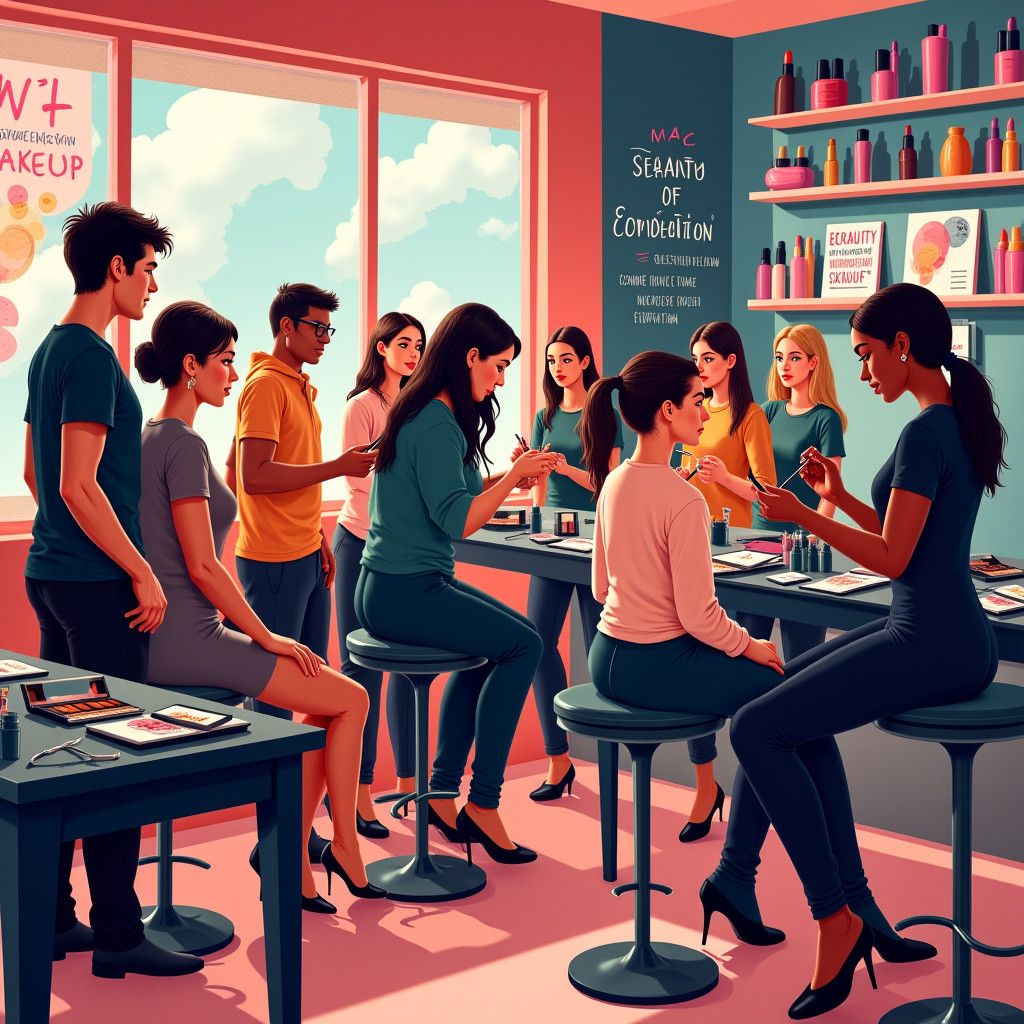In the dynamic realm of beauty marketing, brands continually seek innovative ways to connect with their audience. MAC Cosmetics is stepping up to the challenge with a bold new initiative aimed at sexual education, intertwining beauty and advocacy in an unprecedented campaign. The “This Lipstick Protects” campaign, launching on December 1, coincides with World AIDS Day and aims to raise awareness about safe sex while reinforcing MAC’s ongoing commitment to social causes.
The campaign’s striking visual elements include MAC’s iconic Viva Glam lipsticks, each encased in latex contraceptives—a deliberate and provocative design choice that is sure to turn heads. Aïda Moudachirou-Rébois, MAC’s Global Vice President, articulates the brand’s intention: “Maybe MAC has been too quiet in the past few years… Not everyone does what we do. We can be louder about that. We can be bolder.” This sentiment echoes the brand’s legacy of challenging norms and advocating for important social issues over the last three decades.
Since its inception in 1994, the Viva Glam campaign has provided financial support for organizations battling HIV/AIDS, donating over half a billion dollars to date. Initially launched with RuPaul as its face, the campaign has featured a roster of celebrities, including Lady Gaga and Pamela Anderson. This year, pop singer Kim Petras takes center stage, further emphasizing MAC’s commitment to sexual health awareness in a time when global health challenges persist.
While the campaign tackles the pressing issue of HIV/AIDS, MAC is broadening the discussion to encompass various forms of equality—including sexual, racial, gender, and environmental aspects. The new Viva Equality lipstick range exemplifies this expansion, presenting a collection of four neutral-toned shades that promote inclusivity.
Beyond traditional advertising, MAC’s sex education campaign implements a multi-faceted approach incorporating partnerships with TikTok influencers and live events on college campuses. These efforts will include free HIV testing clinics accompanied by the distribution of branded condoms and product samples. The inaugural activation will occur at CUNY’s Baruch College on December 3, followed by additional locations throughout the winter season.
The strategic integration of sexual education and beauty initiatives raises intriguing questions about customer engagement. By addressing sexual health with the same seriousness as beauty standards, MAC offers a compelling narrative linking personal confidence and informed choices. Moudachirou-Rébois emphasizes that understanding personal decisions regarding sexual health instills confidence, which is paramount in the realm of beauty. “Wearing makeup is one way people express that confidence. To me, the two ideas go together,” she states.
This approach positions MAC as not just a cosmetics brand but as a champion for awareness and empowerment amid challenging socio-political climates. Moudachirou-Rébois calmly addresses concerns regarding potential backlash from conservative forces, reaffirming MAC’s resilient history in advocating for marginalized communities. The brand has navigated these waters since 1984, continuously aligning itself with forward-thinking principles.
This era of advocacy within the beauty industry signifies a shift toward responsibility and engagement beyond superficial aspects. Consumers increasingly favor brands that infuse social purpose into their core identities. MAC’s campaign serves as a model for how beauty brands can effectively communicate their values while addressing crucial issues.
As beauty enthusiasts anticipate this unique blend of education and cosmetics, the campaign offers not only a chance for vibrant lipstick shades but a call to action on health and equality. In a society inundated with cosmetic adverts, MAC’s innovative approach could very well pave the way for the future of advocacy in beauty.
In conclusion, MAC Cosmetics is not merely participating in the beauty conversation but is actively reshaping it through thought-provoking initiatives that prioritize social consciousness. This campaign is a reminder that beauty can and should be both fun and responsible.












